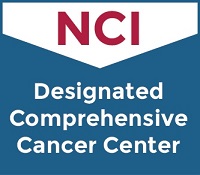Cigarette Restitution Fund Program
In 1999 the Maryland General Assembly announced a $1 billion comprehensive plan to use tobacco settlement funds to conquer cancer and other tobacco-related diseases. Named the Maryland Cigarette Restitution Fund (CRF) Program, the CRF supports cancer research, prevention and care; smoking prevention and cessation programs; substance abuse programs; tobacco farmers' crop conversion; and health care for those without adequate insurance coverage.
Since its inception in 2001, the CRF Program has provided $100.5 million to the UM Greenebaum Comprehensive Cancer Center. These funds have gone toward the building and maintenance of research lab space and equipment, the recruitment of research personnel, and community cancer screening programs. This investment has helped to dramatically reduce cancer incidence and mortality in Maryland. In the early 1990s, cancer incidence in Maryland was among the highest in the nation, but now is well below the national average (38th).
In addition, the CRF Program has allowed UMGCCC to address cancer disparities, or the differences between outcomes seen in various population groups. More than a third of UMGCCC's patients are African American, and nearly half of these African-American patients participate in clinical trials compared with less than 2 percent nationally. This high minority participation rate helped UMGCCC researchers discover the cause of racial disparities in survival rates for certain head and neck cancers, leading to crucial improvements in treatment for African Americans with these cancers.
Funds from the CRF Program also go to support free community cancer screenings. To date, the Baltimore City Cancer Program (BCCP) has provided free cancer screenings to more than 32,000 uninsured and underinsured Baltimore residents. Because of these screenings, 95 early-stage cancers were detected, and UMGCCC connected these patients with treatment resources.
This portion of the website details how the University of Maryland Medical Group – which consists of the University of Maryland Baltimore, University of Maryland School of Medicine and the University of Maryland Medical System – is partnering with the State to more effectively combat cancer in Maryland.
Highlights of the University of Maryland Medical Group plan for fiscal year 2018 include:
- A $10.4 million cancer research grant
- A $1.2 million Baltimore City grant program
Through the above initiatives and with continued funding, the University of Maryland Medical Group is committed to making a real difference in the lives of Marylanders with cancer and other tobacco-related diseases.
The annual Research Matters conference features the results of studies that were funded by the Maryland Cigarette Restitution Fund (CRF) Program, which supports cancer-related research at the State's two academic health centers.


